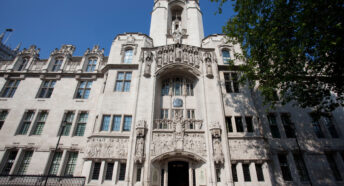Planning to fail: CPRE finds government failing to map route to net zero
The vast majority of local councils have now declared climate emergencies – but they don’t have strategies in local plans (how councils agree their building and infrastructure strategy) to make sure they reach net zero carbon, our new research has found.
We’re delighted that around 85% of councils in England have announced ambitious targets to reach net zero carbon – many for 2030 rather than the government’s 2050 target. But of the 24 local authority local plans adopted outside Greater London since the government’s legally binding 2050 target was set, only one – the Plymouth and South-West Devon Joint Plan – sets out a quantified strategy to reduce its area’s carbon output.
Without clear strategies involving housing, businesses, industry and transport – which between them generate 62% of our carbon emissions – it’s unlikely that councils can meet their climate targets, especially given most local plans are designed to last about 15 years.
Crucially, government planning inspectors, who are responsible for signing off on local plans, aren’t required to prioritise reaching net zero or demand that plans are clear on how they help councils get there. Despite a national policy requirement that local plans should help to achieve ‘radical reductions’ in emissions, there is very little evidence of such measures. CPRE believes planning inspectors must give as much weight to environmental targets as they do housebuilding ones.
Commenting on the research, CPRE chief executive Crispin Truman said:
‘We’re not going to hit net zero by accident. We need to plan for it. Unfortunately, local authorities are hamstrung by national planning policy that is woefully behind the times on this issue. Local plans need to act like road maps plotting the path towards the sustainable future envisaged by the government’s climate change legislation. That they don’t come close to doing so is proof of the failure of current national planning policy.
‘In terms of climate, we are planning to fail. It is impossible to hit net zero if it isn’t prioritised in local plans. Providing the attractive, affordable housing that people need and ensuring it is environmentally sustainable is not an either/or trade off. We need to do both at the same time and with the same commitment.’
As national planning policy doesn’t require local plans to set out their net zero plans, council leaders have been left without the tools they need to hit their legally-binding targets. We want to see the government give local authorities the power to demand and enforce year-on-year reductions in emissions.
For this to happen, we want the national planning rules to be amended so that:
- all new developments demonstrate a measurable reduction in net carbon emissions over the life of the development
- all plans demonstrate how they will deliver a reduction in private car mileage
- any plans to boost housing and employment must also be justified on the basis of the additional carbon reductions they will deliver
- all councils must have their net-zero carbon target integrated across the local plan as a whole
Changing how places work in order to make them a lot less energy-hungry is a crucial step on the road to net zero – and the planning system is the means to do it.
Read our views on planning and the climate emergency:
Why the government needs to make sure net zero is in local plans





 12 min read
12 min read 




